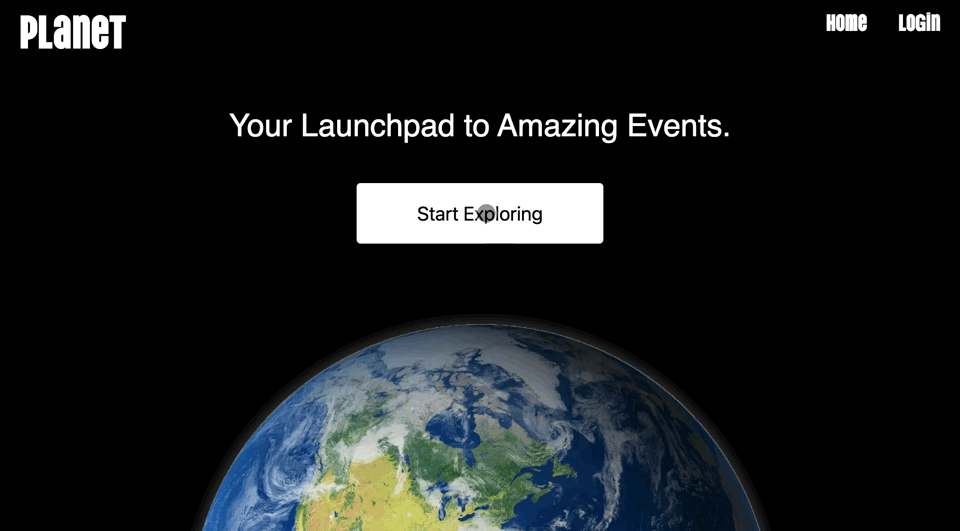Planet - Event Planner

Objectives
- Provide an intuitive and user-friendly platform for event planning.
- Offer robust backend functionalities for comprehensive event management.
- Ensure secure and reliable access for different user roles using Passport.js.
- Demonstrate the effectiveness of combining Next.js, React, MongoDB, and Redux in a full-stack development environment.
Features
- Intuitive User Interface: Built with React for dynamic and responsive user interactions.
- Secure User and Admin Roles: Utilizes Passport.js for authentication and role-based access control.
- Efficient Data Management: Employs MongoDB for data storage and Redux for state management, ensuring a seamless flow of information.
- Real-Time Updates: Integrates SWR for data fetching, allowing real-time updates without page refreshes.
- Modern Design: Uses Material Icons and Bootstrap for a sleek and modern user interface.
Technology Stack
- Next.js: For server-side rendering and static site generation, enhancing SEO and performance.
- React: To build a dynamic and responsive user interface.
- MongoDB: A NoSQL database for flexible and scalable data storage.
- Redux: For managing application state across components.
- Passport: For secure authentication and authorization.
- SWR: For efficient data fetching and caching strategies.
- Material Icons & Bootstrap: For visually appealing icons and responsive designs.
- Docker: For containerization, ensuring consistent environments across development and production.
Outcome
The Planet - Event Planner project successfully demonstrates the efficiency of using a combination of Next.js, React, MongoDB, Redux, and Passport.js to create a robust and user-friendly event planning application. It showcases the application’s capability to manage complex event planning tasks with ease, ensuring a secure and engaging experience for users.
Learning
This project provided invaluable insights into:
- Building full-stack applications with a modern technology stack.
- Implementing secure authentication and role-based access control with Passport.js.
- Managing application state and real-time data with Redux and MongoDB.
- Enhancing user experience through dynamic and responsive design with React and Next.js.